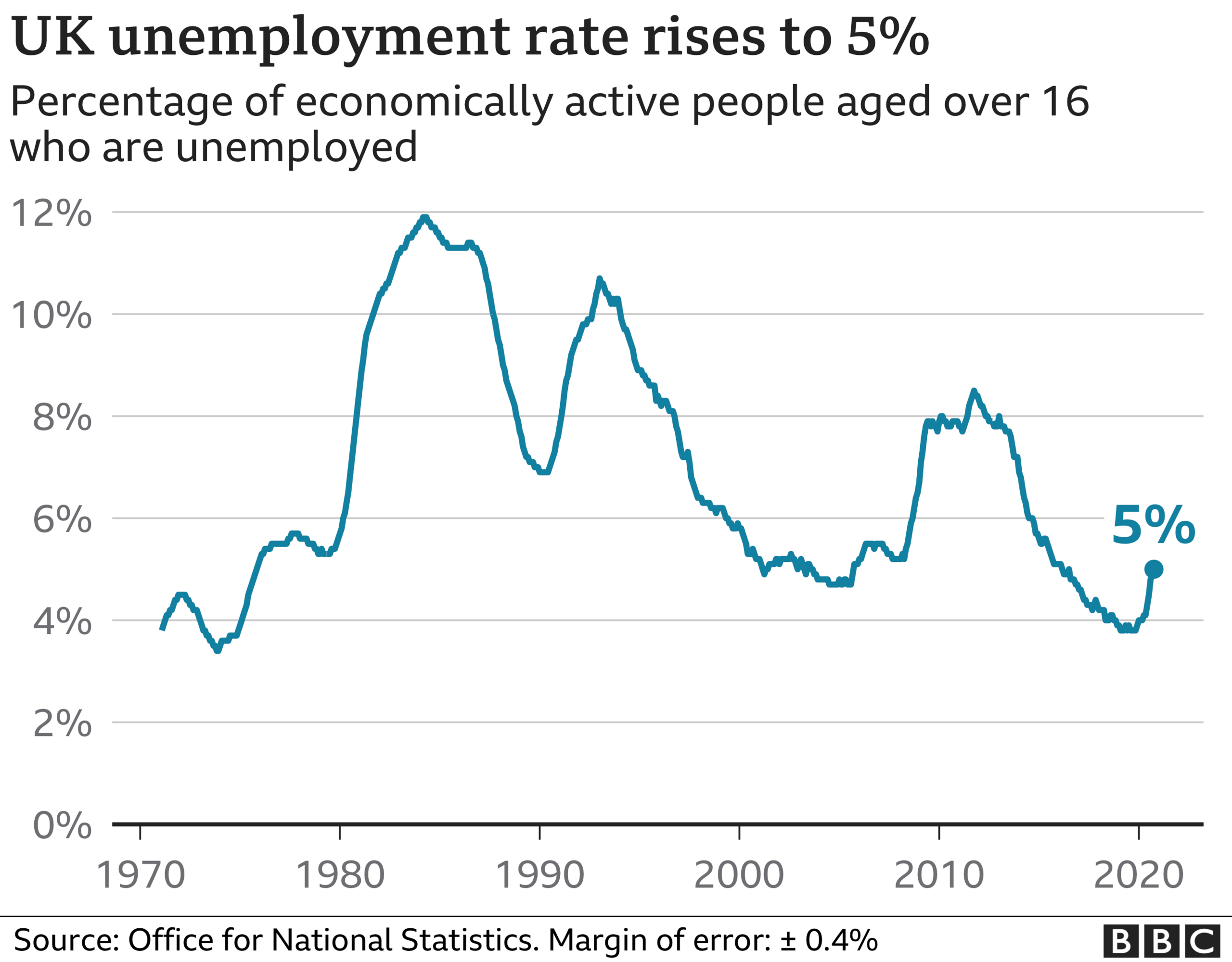More than half of UK firms plan to hire new staff
- Published

More than half of UK employers intend to recruit staff in the next three months, according to new research.
The human resources body, the CIPD, said it was the first positive signs for employment prospects it had seen in a year.
About 56% of 2,000 firms surveyed planned to hire in the first three months of 2021.
The sectors with the strongest hiring intentions include healthcare, finance and insurance, education and ICT.
"Our findings suggest that unemployment may be close to peak and may even undershoot official forecasts, especially given the reported fall in the supply of overseas workers," said Gerwyn Davies from the Chartered Institute of Personnel and Development (CIPD), which carried out the survey with recruitment firm Adecco.
The survey also found that the number of firms planning to make redundancies in the first quarter of 2021 dropped from 30% to 20%, compared with the previous three-month period.
The most recent unemployment rate - for September to November - was 5%, according to the Office for National Statistics (ONS).
That is an increase of 0.6% over the previous three months, and means that 1.72 million people were unemployed.
There were 819,000 fewer workers on UK company payrolls in November than at the start of the pandemic, ONS figures show.
According to figures released by the Insolvency Service in response to a BBC Freedom of Information request, some 292 British employers made plans to cut jobs in January, the lowest figure since the pandemic began.

Hospitality was the worst hit sector, accounting for a third of the job losses, followed by retail.
Only 36% of hospitality employers were intending to recruit new staff, the CIPD and Adecco found.
The government's furlough scheme, which is meant to end on 30 April, has slowed down the number of redundancies.
Nearly 10 million people were furloughed, external between the start of the scheme and 13 December (the latest date for which figures are available).
The scheme has enabled many businesses to keep their staff by furloughing them instead of making them redundant.
However, the body for HR professionals cautioned that it could not rule out further private sector redundancies if the government does not extend the furlough scheme to the end of June, or if the British economy were to suffer any further "shocks".
"It would be hugely counterproductive if the government's financial support faltered, while some of the biggest sectors of the UK economy are still in survival mode," said Mr Davies.

Are you unemployed? Please share your experiences of looking for work in a pandemic. Email haveyoursay@bbc.co.uk, external.
Please include a contact number if you are willing to speak to a BBC journalist. You can also get in touch in the following ways:
WhatsApp: +44 7756 165803
Tweet: @BBC_HaveYourSay, external
Please read our terms & conditions and privacy policy
If you are reading this page and can't see the form you will need to visit the mobile version of the BBC website to submit your question or comment or you can email us at HaveYourSay@bbc.co.uk, external. Please include your name, age and location with any submission.
- Published26 March

- Published8 January 2021
